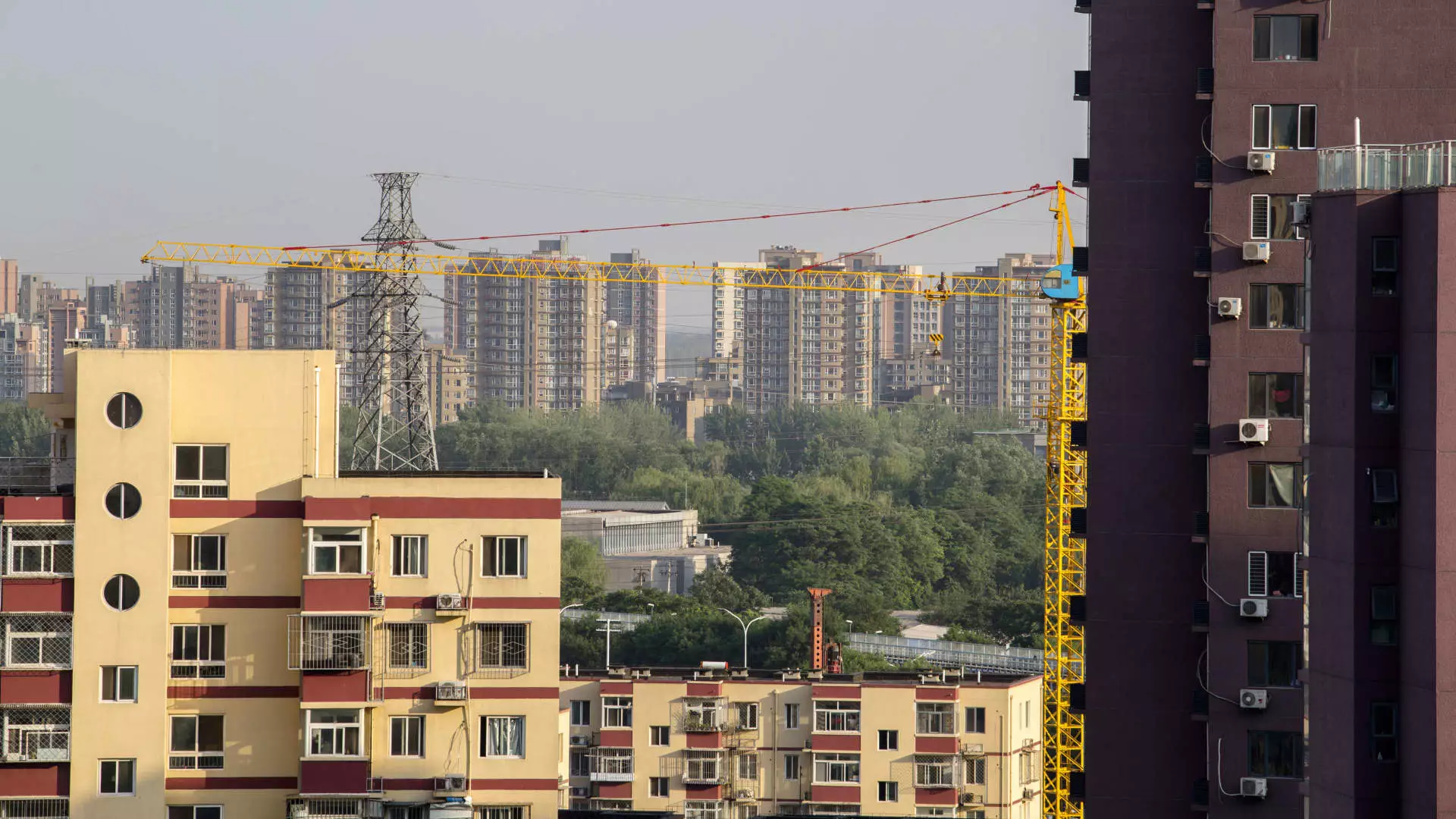The Chinese property market has taken a series of blows in recent years, with sharp declines in investment and household confidence transforming a once-booming sector into a source of concern for policymakers and investors alike. On Tuesday, a glimmer of hope emerged as authorities introduced new monetary easing measures aimed at revitalizing this critical component of the economy. The People’s Bank of China (PBOC) announced significant adjustments to mortgage rates and down-payment requirements, which sent ripples of optimism through the real estate stocks listed on the Hong Kong Exchange.
Pivotal Monetary Measures and Their Immediate Impact
The announcement from Pan Gongsheng, Governor of the PBOC, revealed a pivotal change designed to alleviate the financial strain on households: a 0.5 percentage point reduction in interest rates for existing individual mortgages. This move, coupled with a reduction in the down-payment ratio for second home purchases from 25% to 15%, marks a significant shift in housing policy. For the first time, first and second home down-payments are unified, reflecting an effort to provide a more cohesive and supportive framework for buyers. Market analysts have estimated that this could reduce annual household mortgage interest payments by around 150 billion yuan (approximately $21.25 billion).
Following the announcement, the Hang Seng Mainland Properties Index surged by as much as 5%, with notable gains from major real estate developers such as China Resources Land, Longfor Group Holdings, and China Overseas Land & Investment. Such vigorous market reactions reveal a collective sigh of relief among stakeholders, signaling a cautious optimism for the future of the real estate sector.
Despite the immediate positive reaction from the markets, there remains an underlying skepticism about the effectiveness of these measures in generating a substantial recovery. Real estate investment has plummeted more than 10% year-over-year in the first eight months of this year, painting a grim picture of the sector’s health. As experts like William Wu from Daiwa Capital Markets have noted, while interest rate cuts may provide some immediate relief, they may not be sufficient to fuel renewed demand for new housing. The sentiment is that households, wary from previous downturns, may remain hesitant to engage in new purchases, thereby stalling momentum.
Further complicating the situation, Bruce Pang, chief economist at JLL, emphasized that although these measures are necessary, they are not panaceas for the difficulties faced by the sector. The call for expedient and effective support for developers is urgent, as a lack of investment in property development and construction could hinder long-term recovery.
Policy Context and Future Considerations
The backdrop of these monetary easing measures is one of increasing pressure on the Chinese authorities to stabilize the economy, which has been teetering in the wake of extended COVID-19 lockdowns and subsequent shifts in consumer behavior. The potential for homeowners to renegotiate loan terms or refinance with different banks marks a crucial shift towards aiding individual buyers and sustaining household confidence in the real estate market.
However, the overall impact of these measures may be short-lived if not adequately complemented with broader strategies aimed at fostering long-term industry growth. There’s a growing consensus that alongside immediate monetary adjustments, a robust fiscal policy that encourages property development, investment, and consumer confidence must be enacted.
As investors closely monitor the evolving scenario, the overarching speculation remains: will these monetary easing measures be the catalyst needed for a sustained recovery in the Chinese property market, or will they merely provide temporary respite? While the initial market reaction is promising, the path to recovery appears fraught with challenges. Moving forward, all eyes will be on the Chinese central bank and policymakers to enact comprehensive strategies that not only stabilize the sector but also reignite the confidence of families navigating the murky waters of the current real estate climate.
As the Chinese property market attempts to navigate through these turbulent times, the latest announcements signal hope for recovery. However, the effectiveness of these measures will depend significantly on their implementation and the willingness of both consumers and developers to engage in the market in meaningful ways.

